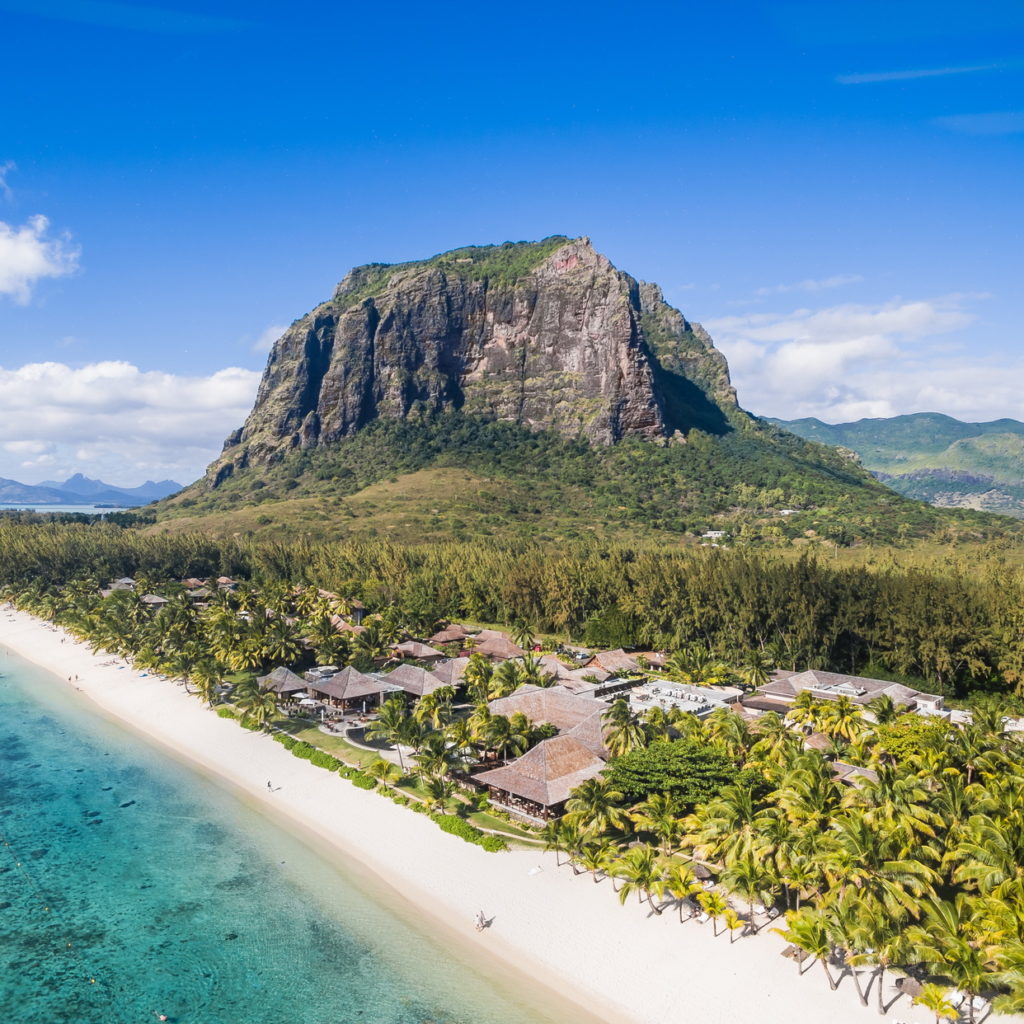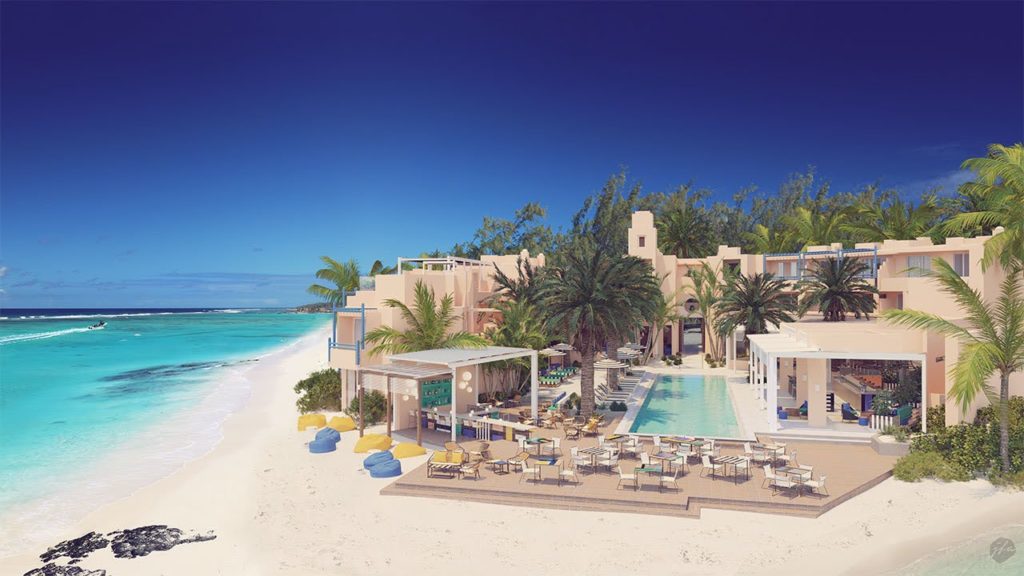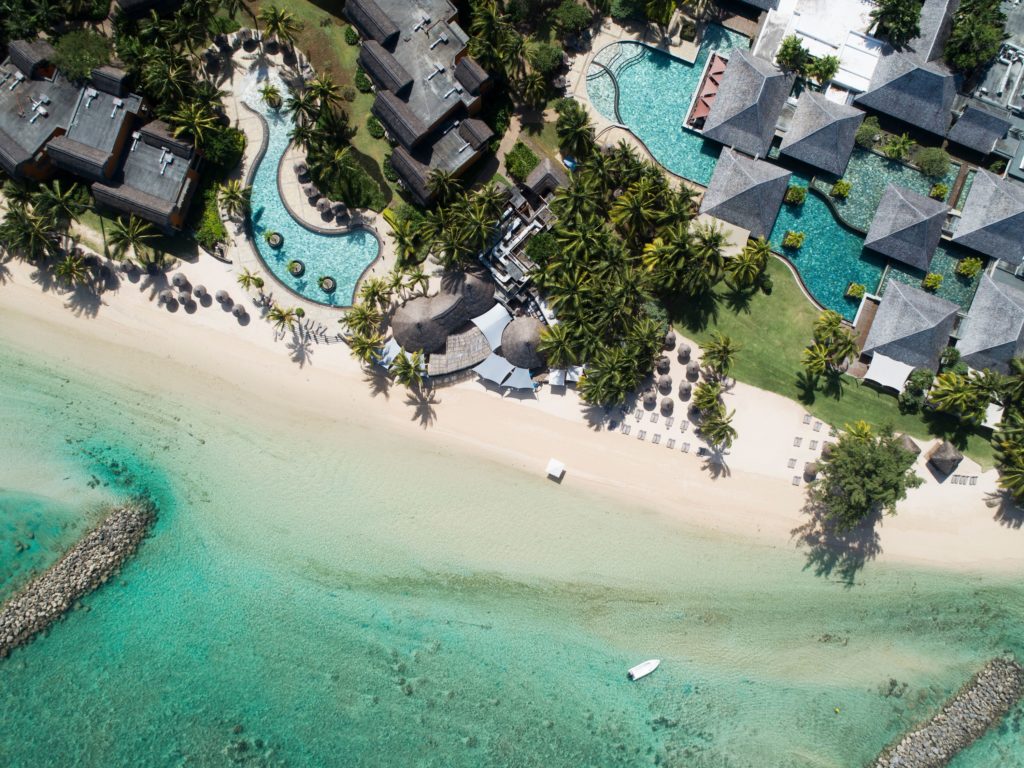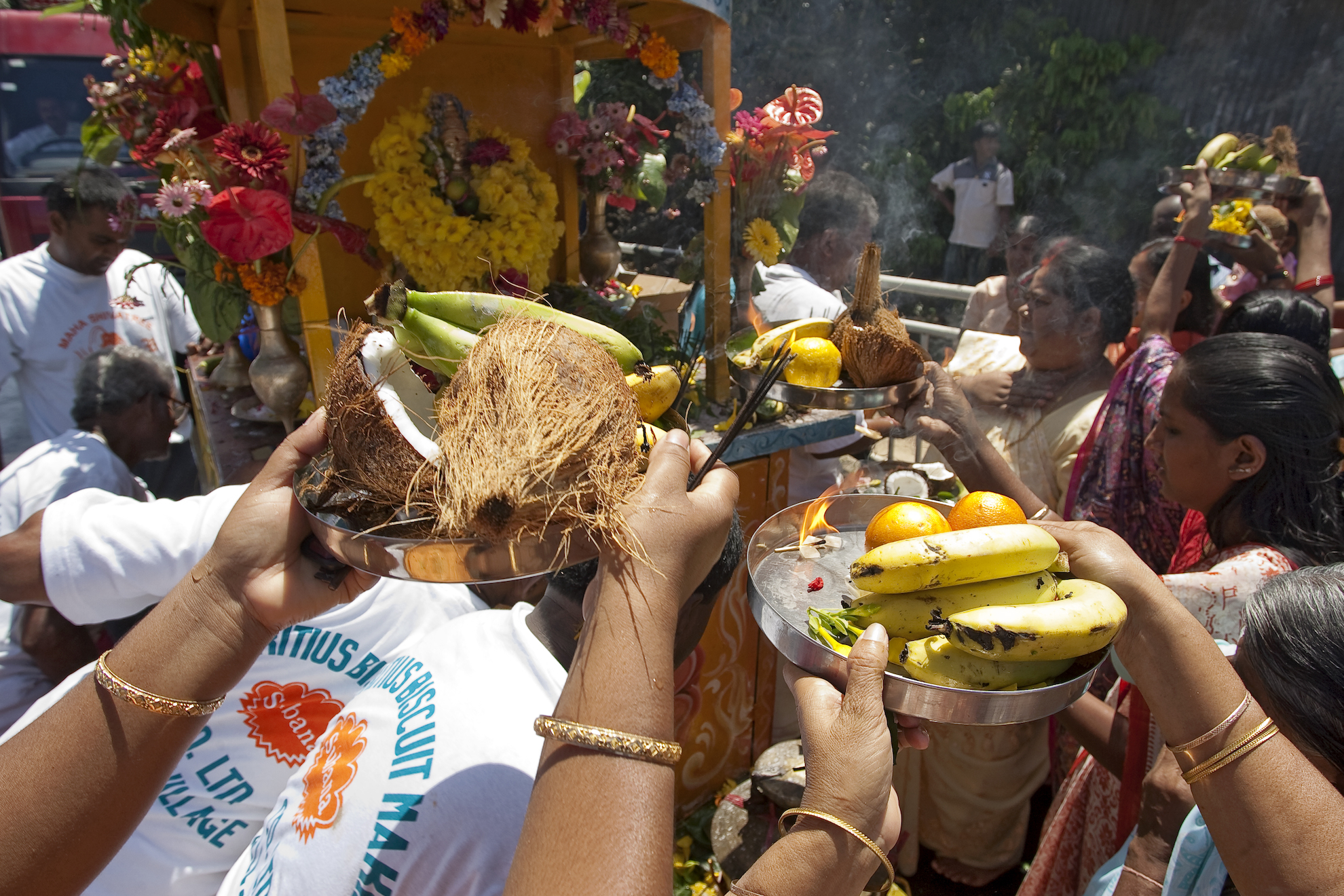
14 Festivals You Can Experience in Mauritius
Long stretches of white sand, dazzling turquoise water, and golden sunlight – these are the images often associated with the small island of Mauritius. It’s seen as the perfect place for a beachside getaway, and while that’s certainly true, Mauritius is more than that. Home to 1.2 million people, Mauritius is as culturally diverse as it is beautiful. A number of religions are practiced across Mauritius from Hinduism, to Christianity, to Islam and each one has its own celebrations and festivals that are celebrated throughout the year.
When visiting Mauritius see what festivals might coincide with your trip. Not only will it be an enriching experience to immerse yourself in the culture of the island, but you will always be welcomed with open arms by the locals to join the celebrations and learn about their traditions and beliefs.
Here are 14 festivals that are celebrated across Mauritius!
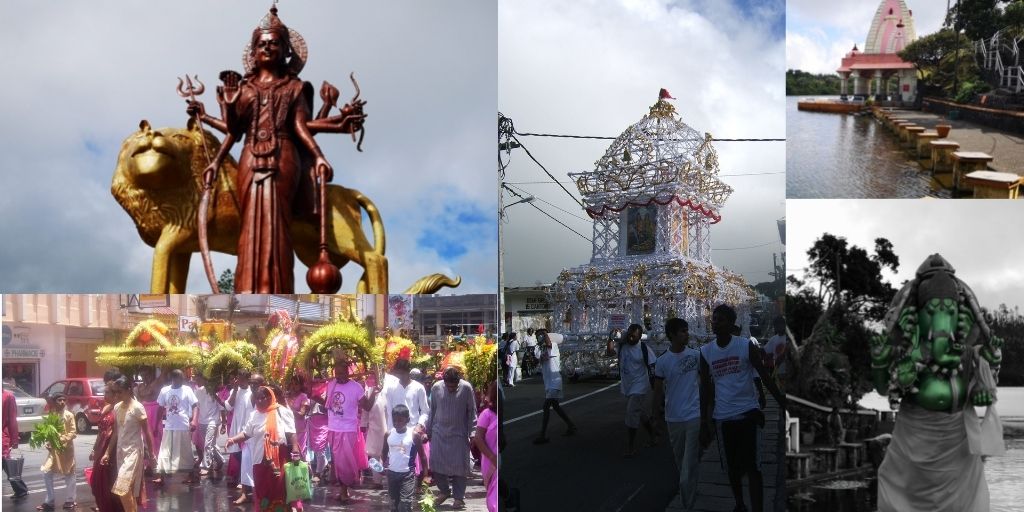
Thaipoosam Cavadee
This festival is celebrated island-wide by the Tamil community in Mauritius usually between January and February. Tamil-Hindi devotees will march through the capital to the nearest Kovil (Hindu temple for the Tamil community) with sacred piercings through their tongues, cheeks and chests. Some carry pots of milk on each side of a cavadee, a wooden structure made of bamboo and rods adorned with flowers and coconut leaves, to symbolise the burden they carry and are repenting for. The pilgrims walk barefoot under the scorching sun and are accompanied by religious groups who encourage them to keep going with devotional songs.
Chinese New Year
Celebrated towards the beginning of the year, the exact date depends on the Chinese calendar and the main celebrations take place in Chinatown in Port Louis. If you visit during Chinese New Year, you might get to see the Chinese dragons and lion dances to the sound of the beating drums that pound through your chest. Firecrackers are lit, an old tradition used to chase away evil spirits but now they are often used with fireworks to express happiness and invite good luck. Make sure to wear something red as it’s a symbol of happiness, and try the traditional wax cakes.
Maha Shivaratree
This festival, celebrated in February or March, is the largest pilgrimage outside of India and it’s not uncommon for Indians to travel to Mauritius just to take part in this festival. The festival itself involves the devotees waking, often barefoot, over great distances to Grand Bassin, a sacred crater lake in a secluded mountain area. Many carry wooden structures as an offering to the gods and it is tradition that volunteers will offer food and drink to the pilgrims. Grand Bassin already has a mystical feel to it as it’s often shrouded in mist, but witnessing hundreds of thousands of Hindus complete this journey would surely be an unforgettable experience.
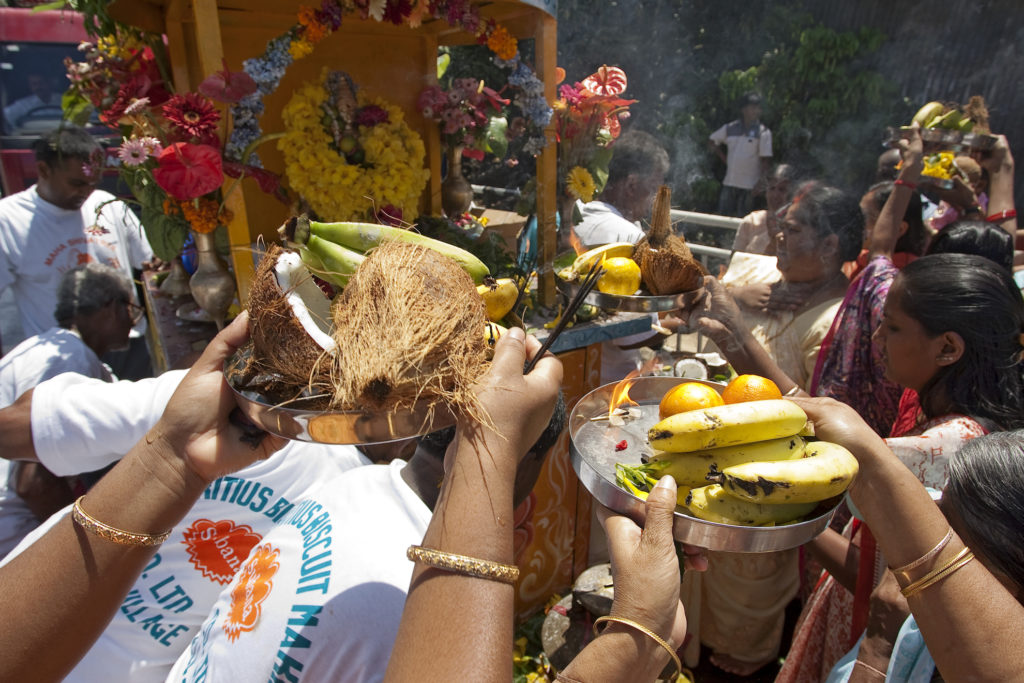
Holi
Holi is one of the most well known Hindu festivals across the world. This festival is an island-wide celebration of good triumphing over evil and covers two days in March starting with a bonfire the night before Holi. This bonfire is a significant symbol of the triumph of good over evil. Small straw and bamboo effigies of Holika are set on top of the bonfire and burned to represent the death of Holika who was burned to death after trying to kill her nephew. The bonfire is accompanied by dancing and the singing of folk songs.
The next day features the most well known part of the Holi celebrations – Who hasn’t seen the beautiful photos of it full of joyful faces stained with colour? People splash coloured water on each other and then vividly-coloured powder, known as gulal. Musicians perform songs accompanied by singers and people can dance and sing along. Holi in Mauritius is celebrated by everyone, even those not of the Hindu faith. This colourful festival of joy would be something incredibly exhilarating to experience.
Ugadi
Ugadi is the celebration of the Hindu New Year that is celebrated in May or June and marks the beginning of the Hindu lunar calendar. In preparation for the festival, Hindus will thoroughly clean and wash their houses. Those celebrating Ugadi will rise in the early hours of the morning to decorate the entrance to their house with mango leaves and colourful designs. To welcome the new the celebration features prayers and rituals for Brahma, creator of the universe, for health and prosperity.
Corpus Christi
Roman Catholics make up the majority of the Christians in Mauritius and devout Roman Catholics celebrate Corpus Christ, a festival related to the body of Christ, on Pentecost Sunday, 50 days after Easter. The celebration, about the Crucifixion, Resurrection, and Ascension of Jesus Christ, also celebrates the descent of the Holy Spirit upon the Apostles and other followers of Jesus Christ. Christians celebrate the gift of the Holy Spirit and parade through the streets of Port Louis.
Ganesh Chaturthi
This special festival is a celebration of the Hindu Lord Ganesha, the God of wisdom. During Ganesh Chaturthi, Mauritian Hindus will clean their houses, fast, and dance. Many people will create statues of Ganesha out of earth and clay which they then take to a body of water such as the sea or a sacred lake and immerse them in it. This festival is celebrated in August or September.
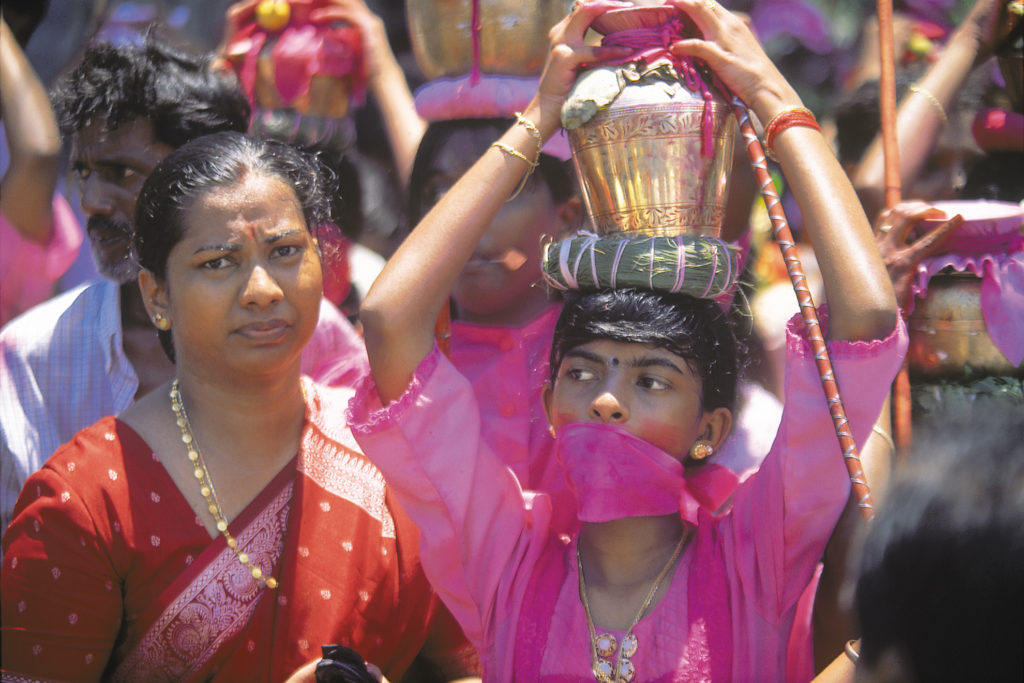
Pere Laval Day
Every year in September Mauritians of all faiths and from all parts of the island make a pilgrimage to the shrine of Father Père Jacques-Désiré Laval, a French Catholic priest. They pray for miracles at his graveside on the anniversary of his death. The coloured plaster effigy on top of the tomb has been rubbed smooth by pilgrims touching it over the years.
Diwali
The annual Festival of Light is celebrated in October or November and marks the triumph of good over evil. Mauritian Hindus clean their homes, wear new clothes, and offer sweet cakes to their friends, family, and neighbours. Sparkling lights and candles illuminate their homes to guide the Goddess Lakshmi to earth to bless them with good fortune. Stunning firework displays are also used for this. As the name suggests, this festival is characterised by light and will surely create a dazzling experience for anyone present during it.
Ghoons
Celebrated by a small minority of Mauritian Muslims, this festival takes place mostly in Plaine Verte where even those who do not celebrate it will gather to spectate the dazzling occasion. Those who take part will carry brightly lit lanterns or “ghoons” made of paper and bamboo to mourn the the martyrdom of the prophet Mohammed’s nephew.
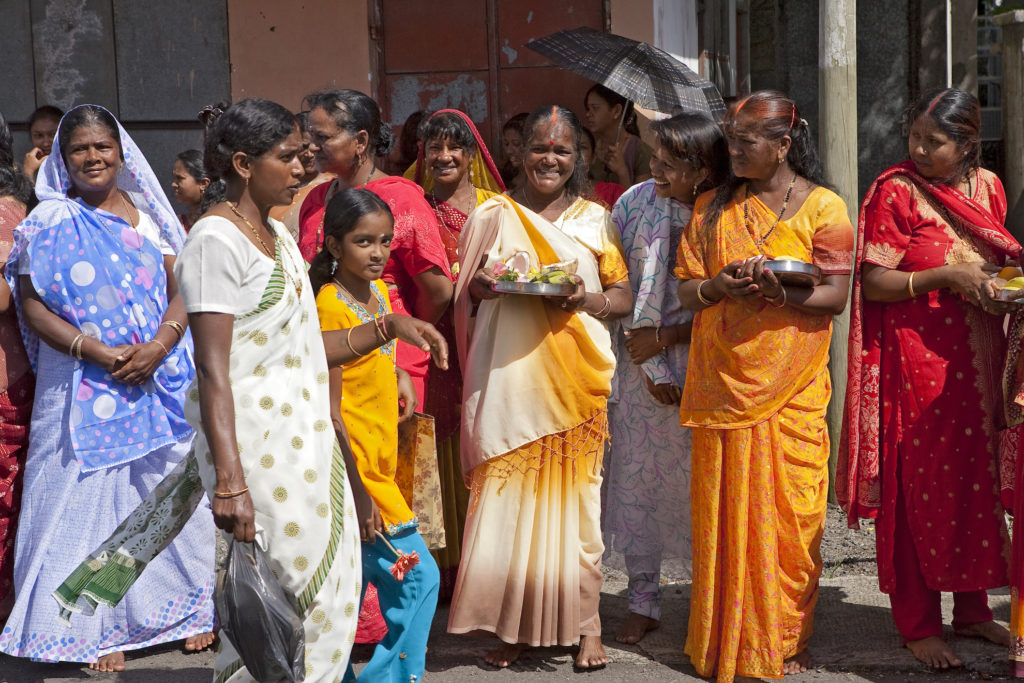
Ganga Snan
This island-wide Hindu festival in October or November is celebrated during the full moon. Those who partake in the festival will fast and offer flowers, fruits, and coconut, and place lights on leaves which they then float on a body of water. They offer prayers to Lord Vishnu, sustainer of the Universe, in respect of the life-giving powers of nature which, in Hinduism, forms an integral part of their beliefs and way of life. Hindus will immerse themselves in water – the sea, or river – to cleanse themselves and purify their mind and body.
Festival Kreol
This festival celebrates Creole culture, Mauritian culture, and all of the communities in Mauritius. It’s held in Le Morne Village in November or December and there’s usually a week of celebrations. This colourful festival features concerts, plays, traditional cuisine, songs, craft stalls, and séga dancing. It’s a celebration of all the intricacies of each culture in Mauritius that hoped to educate people on them and make them better known. If you happen to coincide with this festival it’s sure to be an educational and enriching experience.
Eid-ul-Fitr
Eid-ul-Fitr, also known as the ‘Festival of Breaking the Fast’, marks the end of Ramadan and fasting. Muslims celebrate with prayers for peace and prosperity in Mosques across the island, and sharing food with friends and family as well as giving presents.
Thimithi
In the month of Aipasi in the Tamil calendar (October and November in the Gregorian calendar), Thimithi, or the fire-walking festival, is celebrated. One of the more unusual festivals celebrated in Mauritius, Tamil penitents will walk across a pit of burning coals before cooling their feet in milk. The challenge of the endeavour holds a spiritual significance meant to encourage prayer. This festival would surely be an incredibly powerful thing to witness.
“Learning about Mauritius’ diverse culture and researching the different festivals was a fascinating experience. Growing up in the melting pot of Hong Kong, some of these festivals were familiar, while others were completely new to me. Mauritius is full of colourful history and is definitely a place I would love to visit.”
Each festival has an important place in Mauritius’ cultural heritage and represents the diversity of the country as a whole. The way that people of different religions and backgrounds will participate in and support each other’s festivals is what sets Mauritius apart from other countries where cultures collide. Experience these powerful festivals and the kindness of the locals yourself and, when you visit Mauritius, you too will be welcomed with open arms.
